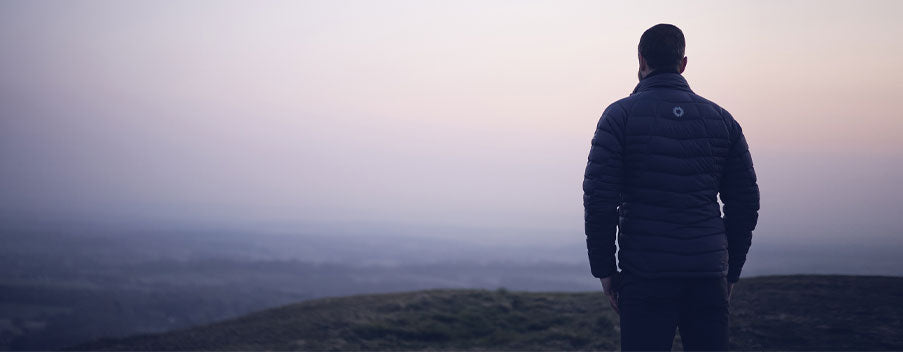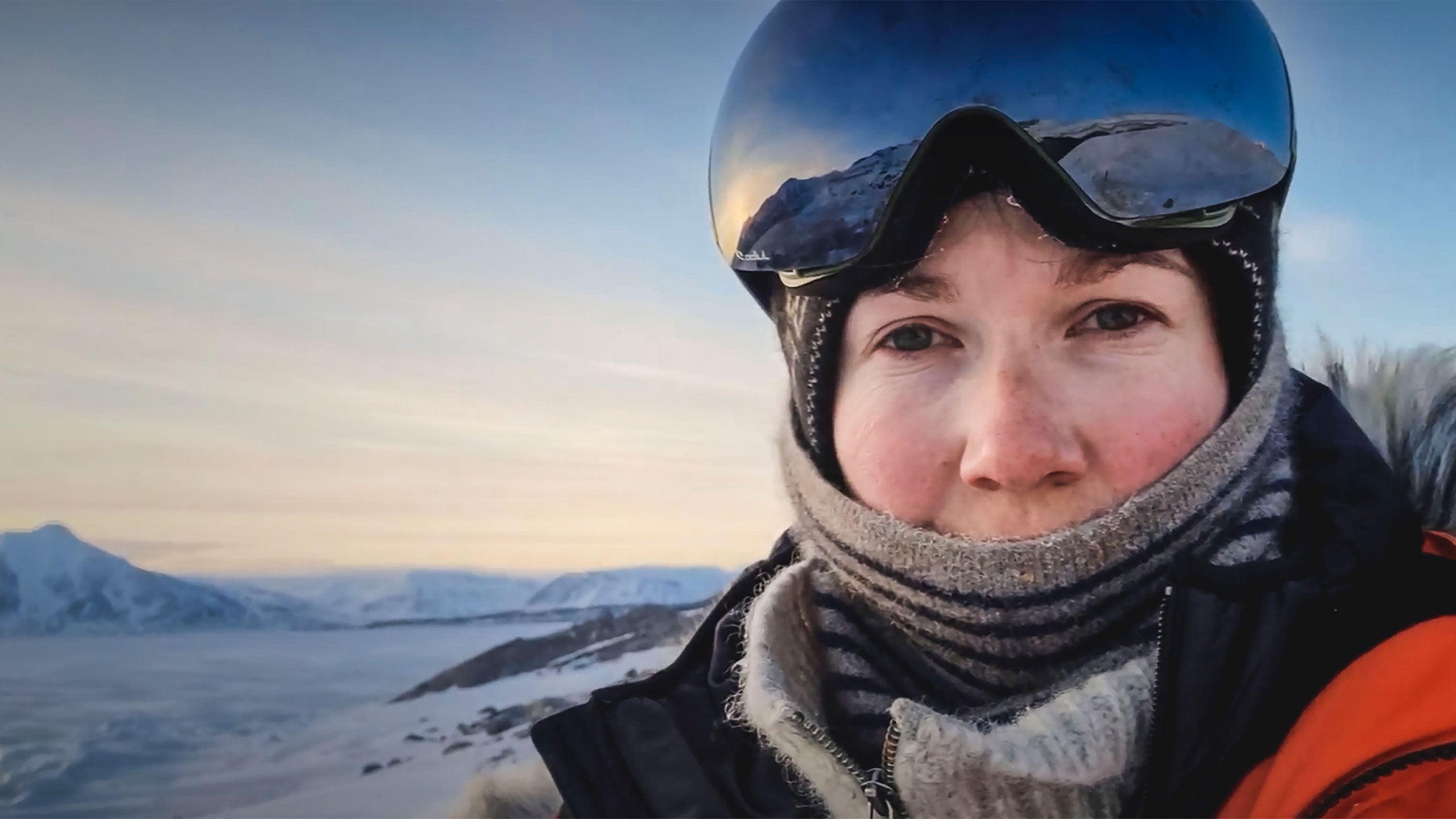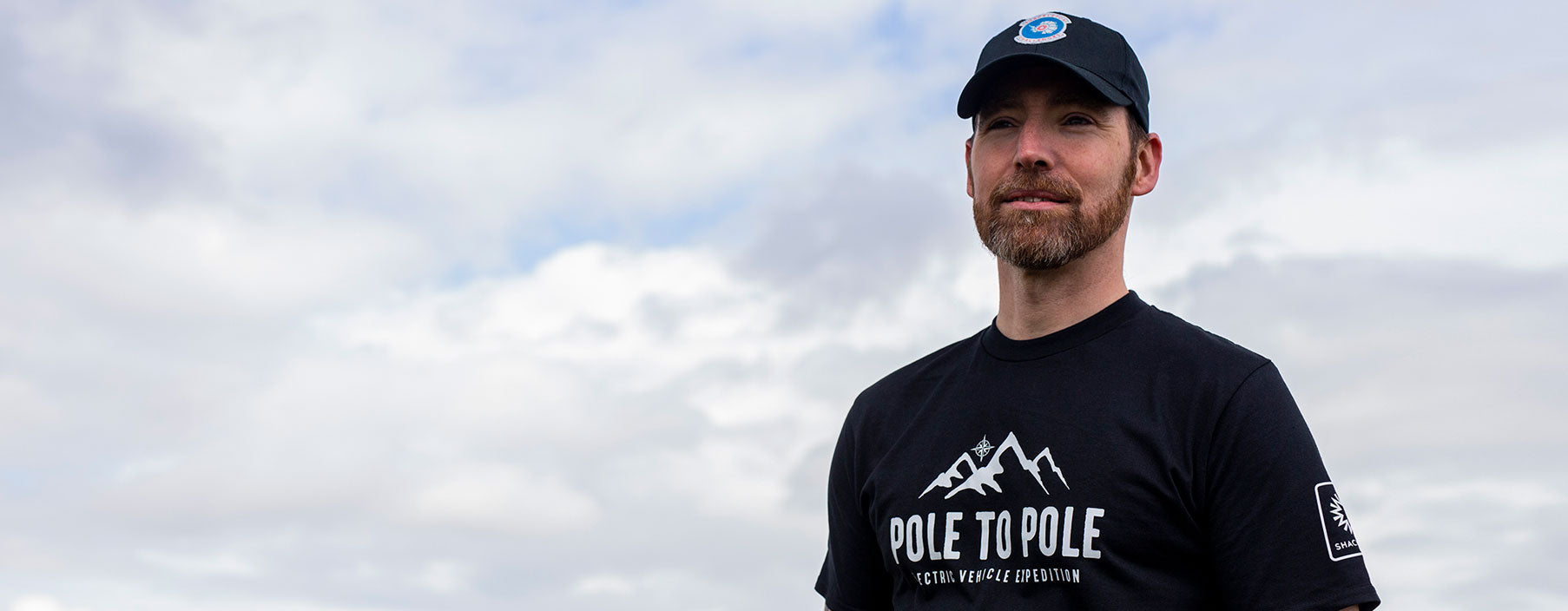
EARLY MORNING MINDSET
We spoke to Shackleton Co-Founder, Ian Holdcroft, about the ‘off-season’ and its importance in the expedition calendar.
What have you been doing recently?
I’ve been in Iceland and more recently Finse in Norway where we were running 6 weeks of Polar Challenges. Although our time on the ice is over for this season, our Shackleton Challenges programme means that we’re always on a countdown to the next expedition with guest clients, even though it may be up to a year away as we prepare them on nutrition, fitness, kit etc.
A lot of my time now is putting together all the logistics for our Last Degree Challenge which we’re running in Antarctica this coming November/December - itinerary planning, safety drills, scenario planning, insurance, personnel etc. A serious expedition may only be a week or two but actually it’s a 2-year long prep process.

As well as more Shackleton Challenges what are you planning for next?
My next significant expedition is a world record attempt to row 1000 nautical miles across the Southern Ocean from the Antarctic Peninsula to South Georgia via Elephant Island - essentially following in the wake of Shackleton’s lifeboat, the James Caird, over a century ago. I’ll be one of a crew of five and we’re hoping to establish or break six world records. It’s a three week expedition and we’ll be proudly carrying the Explorers Club flag.
How will that compare to your Atlantic Row?
The Atlantic row was 3000 miles and mainly quite warm whereas the challenges in the Southern Ocean here will be a very rough sea state, wind pressure, currents, icebergs, and freezing temperatures. Very cold, very wet, very little sleep. A lot to get my head around.

How do you prepare for an expedition like this?
Physical preparation on the erg (rowing machine), building up hours mostly. There’s a balance between endurance and straight training. Long runs, long cycles, long hours on the erg and weight training in the gym. I’ll need to pile on a few kilos - when you’re burning 8000 cal/s day we need to get as big as possible beforehand. There’ll be an inevitable calorie deficit as we’ll be burning more calories than the body can consume and process through our rations. Plus there'll be a lot of sea sickness. We do significant mental mindset work in the run up: scenario planning, understanding all the things that are likely to happen, so that as much as possible, I’ll know how to deal with a situation as it arises. This also involves exercises to cope with discomfort, pain and emotional and mental pain.
How do you balance that level of preparation with the daily commitments of work and family?
It’s a juggling act. I have to find the time to get it done and that normally means buying more time, starting the day earlier and getting out to train before our three children are awake. I think of it like I’m getting twenty percent more day than everyone else.
Why is the morning the best time of day for you?
Morning is the only time of the day when I can really focus on the expedition, when I can build real clarity of thought and develop my mindset. I need to approach the day with real purpose and ambition, it’s the only way that I can deliberately shape the day ahead rather than having it just happen to me. I love the feeling when you realise that everyone else is fast asleep in their beds but you’re out early… being ahead of the game, being a bit more prepared, that feeling of having the world to myself.

Wearing: Ronne Down Jacket
What time do you go to bed then?
Normally 10:30 - I fall straight to sleep immediately.
What time do you get up?
5am on the dot.
How does the early morning start improve your mental strength and resilience?
I get a lot of energy from the sunrise when dark goes to faint light in the eastern sky. All the troubles of the previous day and the night seem to go away as the sun rises. It's a golden moment: yesterday is over and today hasn’t quite started; it's like a transition between two states and an almost ageless feeling. You get that feeling really strongly at sea or in a desert when the first of the orange sunbeams appear - it's exactly the same view that humans have been looking at for thousands of years and will do far into the future - the cycle of sunrise and sunset. Moonrise and moonset.
When I crossed the Atlantic, we were rowing east-to-west facing towards Africa with our backs to the Caribbean: we could see every sunrise perfectly. So even when I’m out riding around Richmond Park first thing, every new sunrise is connected to all the other sunrises I’ve witnessed in the past and they kind of aggregate in a really positive way for me.
An early start is like a meditation, it’s time to contemplate and appreciate what you have without interruption. And then once you’ve gone out and pulled tyres or put in a big ride or run, you can reassure yourself that you’ve done the hard yards.
One of my heroes is Sir Steve Redgrave. Famously, he even trained on Christmas day because he wanted to get to the start line knowing that he’d done everything possible to win… rather than having a chink in his mental armour that he’d occasionally slacked off. It’s the same with expeditions - if you’re struggling in the moment on expedition, it’s imperative to look back on your preparation with confidence.
I know the Southern Ocean row will be really bloody tough, I will need every ounce of resilience I can muster. My strategy for getting through those moments is to know deep down I will be able to reassure myself that I’ve done the work, I've put in the hours and built the resilience to overcome that discomfort. It’s like a feedback loop. You think - I’ve faced this before, I got through it, I can overcome the challenge, it will pass, I will get through it because `I know I can.
How can I trust myself to be strong in that situation if I couldn’t even cope with pain and discomfort training back home when my life wasn’t even in danger?

Wearing: Docker Merino Sweater
Does it make a difference physically to exercise early in the morning rather than later in the day?
Absolutely. If you raise your metabolism first thing, you feel the endorphins and energy to use throughout the morning and the day. You process and digest food better, flush out toxins and set your body for the day ahead. And then of course there’s the vitamin D and protecting yourself against SAD.
Are you thinking of joining the Druid movement?
Ha! Well I might look into it. The way I think of it - the sun is the ultimate source of energy. If I can get out early and use that incredible power and energy to build my reserves it’s far better than doing it in the gym.


